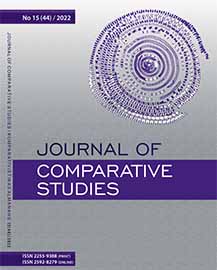H. P. Blavatsky’s Later Reception of Hindu Philosophy
H. P. Blavatsky’s Later Reception of Hindu Philosophy
Author(s): Tim RudbøgSubject(s): Theology and Religion, Religion and science , History of Religion
Published by: Daugavpils Universitātes Akadēmiskais apgāds “Saule”
Keywords: H. P. Blavatsky; Theosophy; Hindu philosophy; orientalism; esotericism; “The Secret Doctrine”; innovation;
Summary/Abstract: This article explores Helena Petrovna Blavatsky’s innovative use of Hindu Philosophy in “The Secret Doctrine” (1888). Read in connection with scholarship on Hindu philosophy at the time, it is shown how the use and assimilation of Hindu philosophy in “The Secret Doctrine” was done in accordance with a pre-established frame of the Esoteric philosophy. It is argued that “The Secret Doctrine”, as a textual product, can be regarded as an innovative product (re)constructing esotericism in a number of new ways: (1) in the sense that Hindu philosophy became of central relevance to the themes discussed in the work and thereby to the development of the modern occultism and theosophy, which the work facilitated; (2) in the sense that the identity of Esoteric philosophy itself was framed in direct relation to Hindu philosophy; and (3) in the sense that concepts from Hindu philosophy such as purusha and parabrahm were explored, reinterpreted, and adopted to be a part of the worldview expressed in “The Secret Doctrine”, which in turn became central to modern esotericism. The article also shows that while all the traditional six schools of Hindu philosophy are mentioned in one way or another in Blavatsky’s works, Sāmkhya and particularly Advaita Vedanta played the most significant roles in “The Secret Doctrine”.
Journal: Komparatīvistikas almanahs
- Issue Year: 2022
- Issue No: 15(44)
- Page Range: 60-79
- Page Count: 20
- Language: English

